This past spring, while her Grade 6 peers were in class writing spelling tests and working on their multiplication tables, Abby Heinrichs was doing something completely different: walking 600 kilometres in support of indigenous rights.
The 11-year-old Winnipegger was one of more than 50 people who participated in the Pilgrimage for Indigenous Rights, a journey co-organized by Mennonite Church Canada and Indigenous Solidarity of Christian Peacemaker Teams.
The goal was to raise awareness about the United Nations Declaration on the Rights of Indigenous Peoples (UNDRIP) and the proposed Bill C-262, an act that would ensure that the laws of Canada are in harmony with UNDRIP.
“I wanted to go on the pilgrimage because indigenous peoples’ rights are important to me, because they will affect me when I’m older,” said Abby, who attends Hope Mennonite Church. She is from the Stó:lō Nation, an indigenous group in B.C.’s Fraser Valley. “When I’m an adult, I [want to] have equal rights like everyone else.”
Steve and Ann Heinrichs, a Mennonite couple, adopted Abby when she was 31 days old. Today, Steve is the director of indigenous relations at MC Canada and one of the driving forces behind the pilgrimage that began on April 23, 2017, in Kitchener, Ont., and ended on May 13 in Ottawa.
Participants held a number of conversation circles en route as a way to engage churches in conversation about UNDRIP, why it matters, the hope it offers and how Christians can respond.
Abby spoke publicly at events in Perth, as well as at the rally in Ottawa, where the pilgrimage ended.
“Here are some examples of why we need to adopt UNDRIP,” she told the crowd in Ottawa. “A native child gets $3,500 less funding than a public school child. Native people are treated a lot differently than white people. For example, more than 150 first nations today don’t have clean drinking water. Finally, many native peoples were here before the settlers came. So why hasn’t the government given them back some of their land while they’re on tiny reserves?”
“I’m walking on this pilgrimage for many reasons,” she added. “One of the reasons is because I think that indigenous peoples should have equal rights just like anyone else. Another reason is that I think Prime Minister Trudeau should honour his promises to the indigenous peoples. So now that we’re in Ottawa, I hope that the government decides to rethink about Bill C-262. So I have some questions today: Why are indigenous peoples treated differently from settlers? And why hasn’t the government decided to fully adopt and implement Bill C-262 and the United Nations Declaration on the Rights of Indigenous Peoples?”
An easygoing introvert and avid reader whose favourite subject in school is art, Abby tells Canadian Mennonite that the hardest part of the pilgrimage was walking in the afternoons when it sometimes got really hot. The long days, which often started at 5:30 a.m. and ended at 10 or 11 p.m., were also challenging.
At the same time, the pilgrimage went by faster than she anticipated, and she had a lot more fun than she initially thought she would. “Lots of people ask me what the best part of the pilgrimage was, and it was probably the food,” she said. “It was really good, and getting to the church [where we were staying overnight] in the afternoon when we were all tired was pretty great.”
Steve and Ann said they are proud of Abby for participating in the pilgrimage. As white adoptive parents of two indige-nous young people, they see it as their duty to both teach their children about their history as well as work towards reconciliation and a better future for all indigenous people.
The pilgrimage afforded Abby the opportunity to watch and learn from some amazing women, they said, including Leah Gazan, an indigenous activist and University of Winnipeg instructor, and Sylvia McAdam, one of the co-founders of the Idle No More movement.
“From a mother’s perspective, I’m just so glad [she was] surrounded by good role models and good people,” Ann said. “God’s provided that. We have really quality people who care about Abby.”
“It was neat to watch this young person, obviously who I care the world for, grow up on this journey,” Steve added.
Abby is glad she took part in the pilgrimage. “I thought it would be mostly work, but there was time for fun,” she said. “I learned about other people’s lives and their stories and stuff. I learned about how lots of people care about indigenous rights and about Bill C-262.”
Read more about the Pilgrimage for Indigenous Rights at “It doesn’t feel so lonely anymore.”


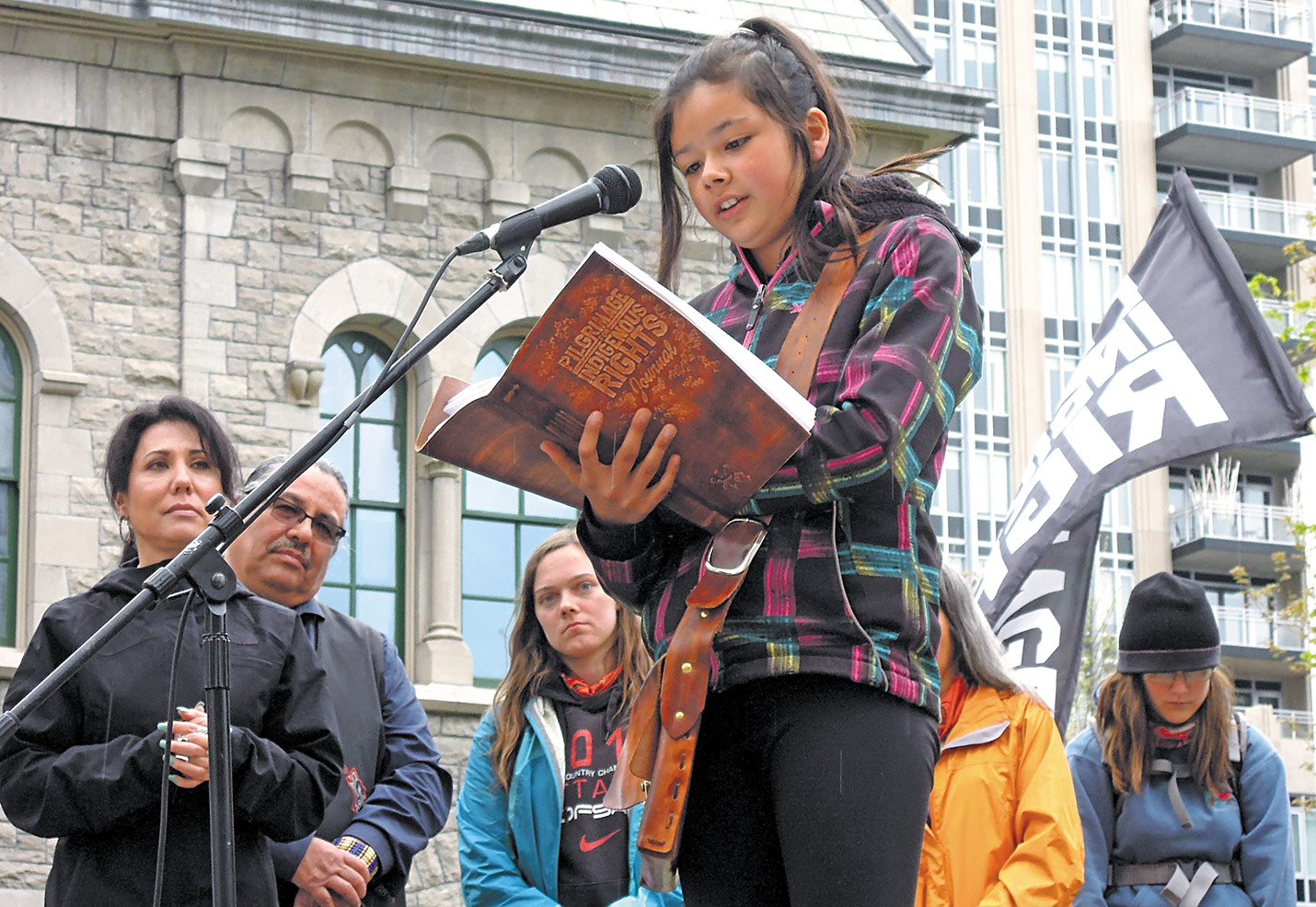

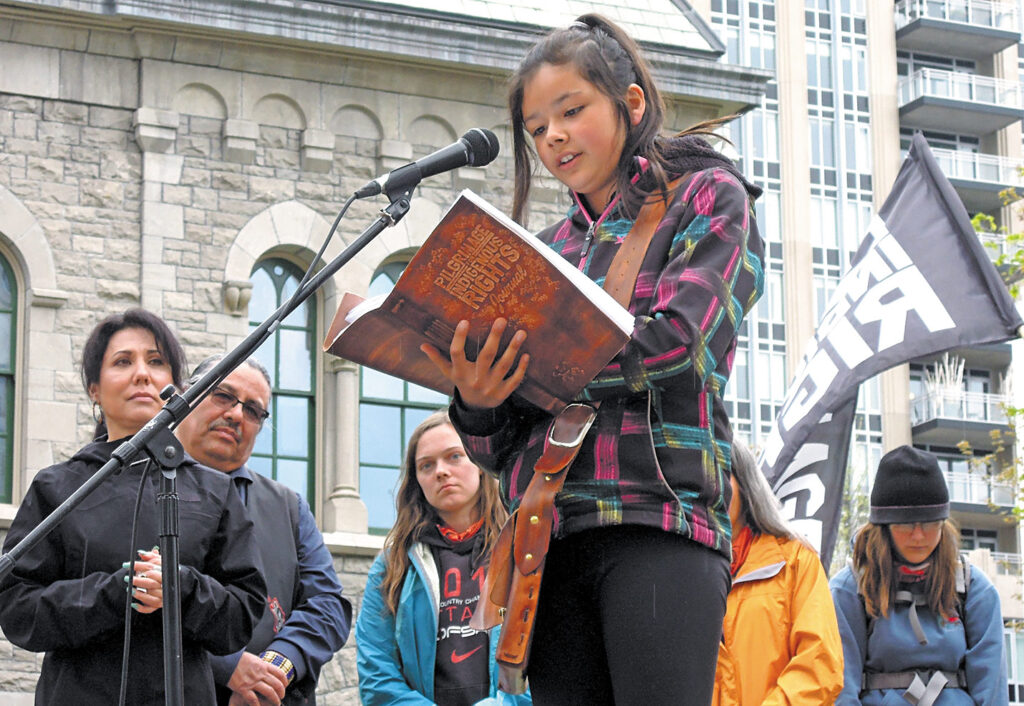
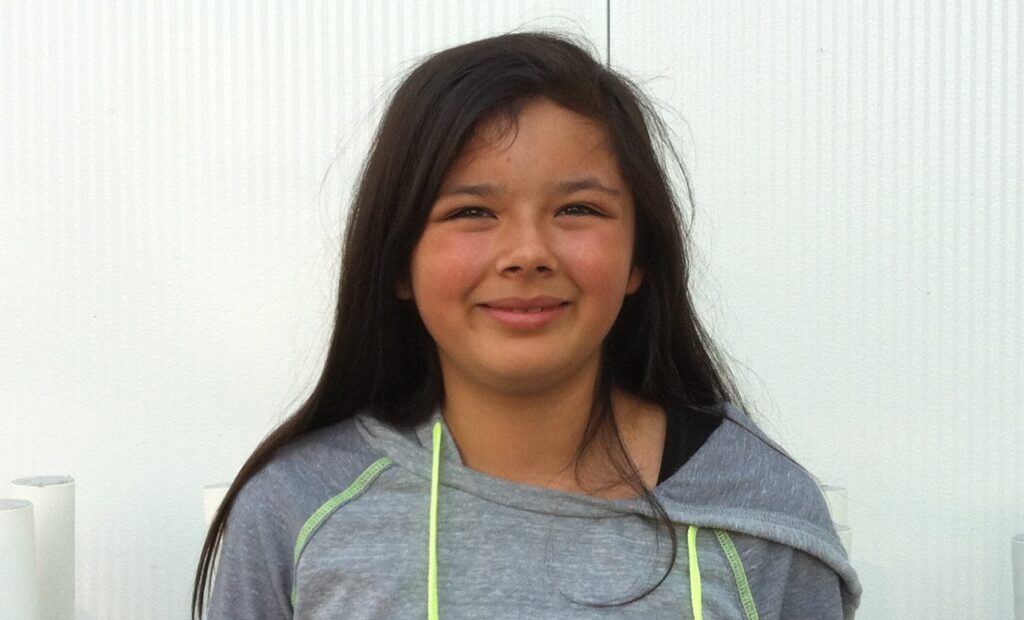
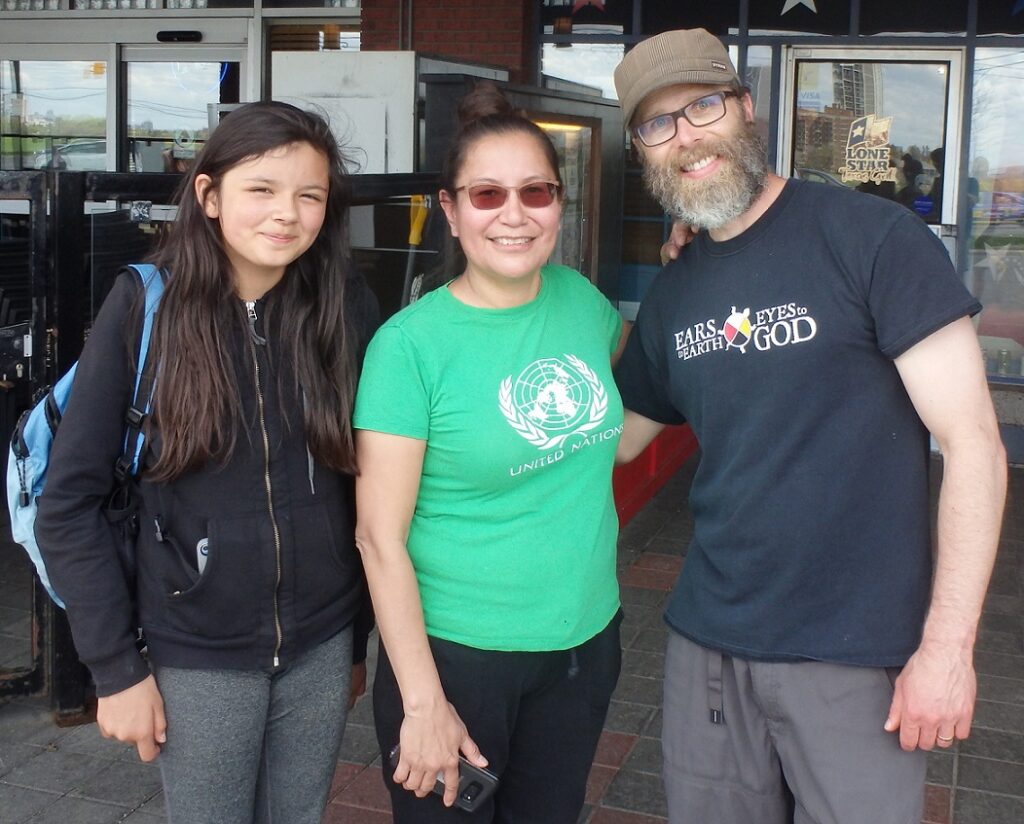
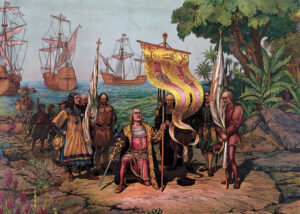
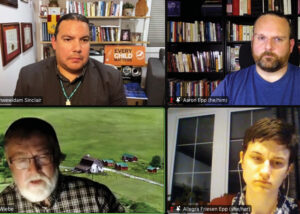


Leave a Reply
You must be logged in to post a comment.